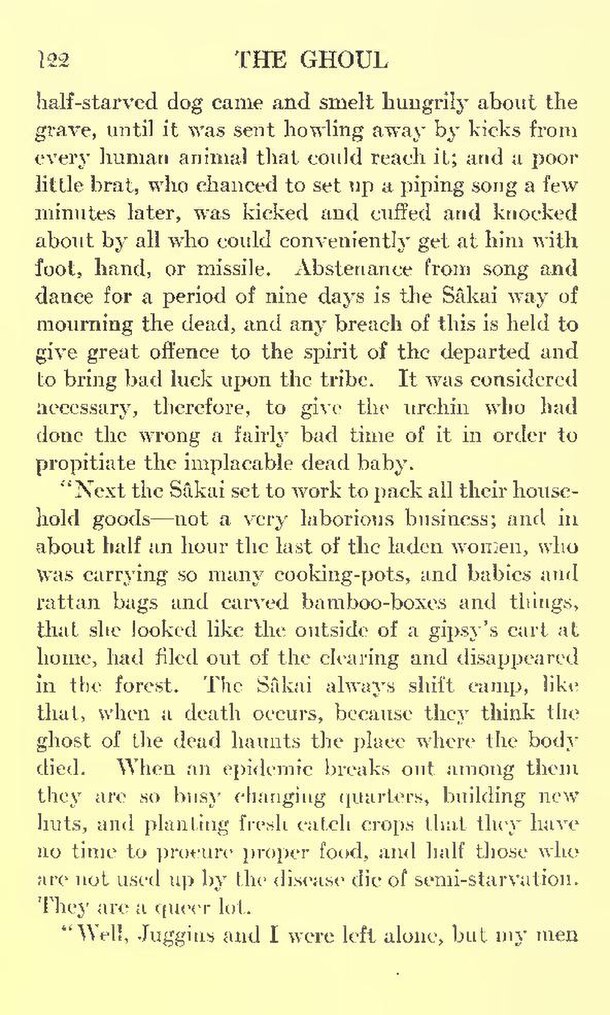half-starved dog came and smelt hungrily about the grave, until it was sent howling away by kicks from every human animal that could reach it; and a poor little brat, who chanced to set up a piping song a few minutes later, was kicked and cuffed and knocked about by all who could conveniently get at him with foot, hand, or missile. Abstenance from song and dance for a period of nine days is the Sâkai way of mourning the dead, and any breach of this is held to give great offence to the spirit of the departed and to bring bad luck upon the tribe. It was considered accessary, therefore, to give the urchin who had done the wrong a fairly bad time of it in order to propitiate the implacable dead baby.
"Next the Sâkai set to work to pack all their house-hold goods—not a very laborious business; and in about half an hour the last of the laden women, who was carrying so many cooking-pots, and babies and rattan bags and carved bamboo-boxes and things, that she looked like the outside of a gipsy's cart at home, had filed out of the clearing and disappeared in the forest. The Sâkai always shift camp, like that, when a death occurs, because they think the ghost of the dead haunts the place where the body died. When an epidemic breaks out among them they are so busy changing quarters, building new huts, and planting fresh catch crops that they have no time to procure proper food, and half those who are not used up by the disease die of semi-starvation. They are a queer lot.
"Well, Juggins and I were left alone, but my men
